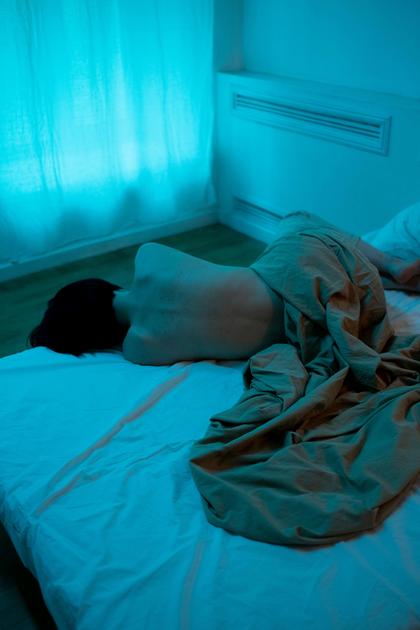Experiencing hair loss in menopause after stressful life events can be a distressing issue for many women over 30. As life unfolds, stressors like career pressures, family responsibilities, or emotional challenges can significantly impact our health, leading to surprising symptoms such as hair loss. Understanding the science behind these changes can empower women to take steps towards managing their well-being effectively.
It’s time to explore how emotional stressors can trigger a chain reaction in our bodies, influencing everything from hormonal balance to personal confidence. Women often feel alone in these struggles, but the truth is that you’re not isolated in your experience.
The Calm Reset — 7 Days to Feel Steady, Kind & In Control Again - Only $2.99
Gentle guidance trusted by our community.
Have you ever felt overwhelmed by fatigue or unexpected anxiety? You’re not alone. Click the button here to see how many women are resolving these issues without heavy medications and reclaiming their vitality, starting from within.
Understanding Hair Loss: The Connection to Stress
Many women experience hair loss during menopause, a phase that can be particularly challenging, especially after experiencing stressful life events. Stress impacts the body in various ways, and hair health is one of the areas most affected. When we face emotional or physical stress, our hair follicles enter a resting phase, leading to increased hair shedding and eventual thinning.
Research indicates that chronic stress can lead to a condition called telogen effluvium, where hair prematurely shifts from the growth to the shedding phase. This is particularly concerning during menopause when hormonal changes are already at play. Understanding how stress affects our hair can be the first step in addressing hair loss issues.
How Menopause Changes Hair Health
During menopause, hormonal fluctuations can cause significant changes in hair health. Estrogen and progesterone levels drop, leading to thinner and weaker hair. The shift in these hormones can also increase androgen levels, which can exacerbate hair loss.
Women may notice changes in texture, volume, and even changes in the hair growth cycle during this time. The hair may take longer to grow back after shedding, and it’s not unusual for women to feel less confident about their appearance. Recognizing these changes is crucial for managing expectations and understanding that this is a common experience.
The Role of Hormones in Hair Loss
Hormones play a vital role in the health and growth of hair. In menopause, the decrease in estrogen leads to an increase in dihydrotestosterone (DHT), a potent androgen that can shrink hair follicles. This process, known as androgenetic alopecia, results in hair thinning and is often hereditary.
It’s important to note that hormonal therapy can help restore balance and potentially improve hair density. Working with a healthcare provider can provide insight into the best hormone management strategies for each individual.
Addressing Emotional Well-Being during Menopause
Emotional health is intricately linked to physical health during menopause. Stress, anxiety, and depression can all exacerbate hair loss. Therefore, taking time to focus on emotional well-being is essential. Engaging in mindfulness practices, such as meditation and yoga, can help calm the mind and body, reducing the stress that contributes to hair loss.
Finding support through support groups or talking to friends who are going through similar experiences can provide comfort. Remember, you are not alone in this journey.
Natural Remedies to Combat Hair Loss
Many women seek natural remedies to promote healthier hair during menopause. Here are a few popular options:
- Essential Oils: Oils like rosemary and lavender can stimulate hair growth when massaged into the scalp.
- Aloe Vera: Known for its soothing properties, it can promote a healthy scalp environment.
- Herbal Supplements: Supplements such as saw palmetto and ginseng are believed to support hair health.
Incorporating these remedies into your routine may help alleviate some of the stress associated with hair loss.
Nutritional Support for Healthy Hair Growth
Nutrition plays a significant role in maintaining healthy hair. During menopause, it becomes even more critical to focus on a balanced diet rich in vitamins and minerals.
- Vitamin D: Important for hair follicle cycling.
- Biotin: Supports hair thickness and health.
- Iron and Zinc: Essential for preventing hair loss.
Including a variety of fruits, vegetables, lean proteins, and healthy fats can significantly improve hair health. Consider consulting with a nutritionist for personalized advice.
The Importance of Self-Care Practices
Self-care is often overlooked, yet it is vital during menopause. Taking the time for yourself can reduce stress and improve overall well-being. Establish a routine that includes:
- Regular Exercise: Helps elevate mood and reduce stress.
- Healthy Sleep Patterns: Aim for 7-9 hours of quality sleep each night.
- Relaxation Activities: Finding hobbies or activities that bring joy can be a great stress reliever.
When you invest time in yourself, you may notice improvements not only in emotional health but also in your hair.
Seeking Professional Help: When to Talk to a Doctor
If hair loss becomes severe or causes significant distress, it’s essential to seek professional help. A healthcare provider can offer guidance and options, including:
- Hormone Replacement Therapy (HRT): To balance hormones effectively.
- Medications: Such as minoxidil, which can promote hair growth.
- Counseling or Therapy: For addressing emotional impacts related to hair loss.
Don’t hesitate to reach out; there is help available.
Real Stories: Women Overcoming Hair Loss Challenges
Many women find comfort in hearing stories from others who have faced similar challenges. Some have successfully navigated through menopause and hair loss by employing various techniques and seeking support.
Online forums and communities offer a space to share experiences, and you might be surprised at how many have found natural remedies and strategies that worked wonders for them.
Embracing Change: Finding Strength in the Journey
While hair loss can feel like a daunting challenge, it can also provide an opportunity for growth and self-acceptance. Many women find strength in embracing these changes, discovering new styles or ways to care for their hair that brings them joy.
With time, patience, and the right support, it’s entirely possible to improve hair health and regain confidence. Remember that you don’t have to navigate this journey alone. . Change can be beautiful, and finding new ways to cope can lead to unexpected discoveries.
Every step you take towards understanding and caring for yourself is a step towards a brighter future. You are resilient, and with the right tools, you can transform this moment into an opportunity for renewal and empowerment.
The Calm Reset — 7 Days to Feel Steady, Kind & In Control Again - Only $2.99
Gentle guidance trusted by our community.







